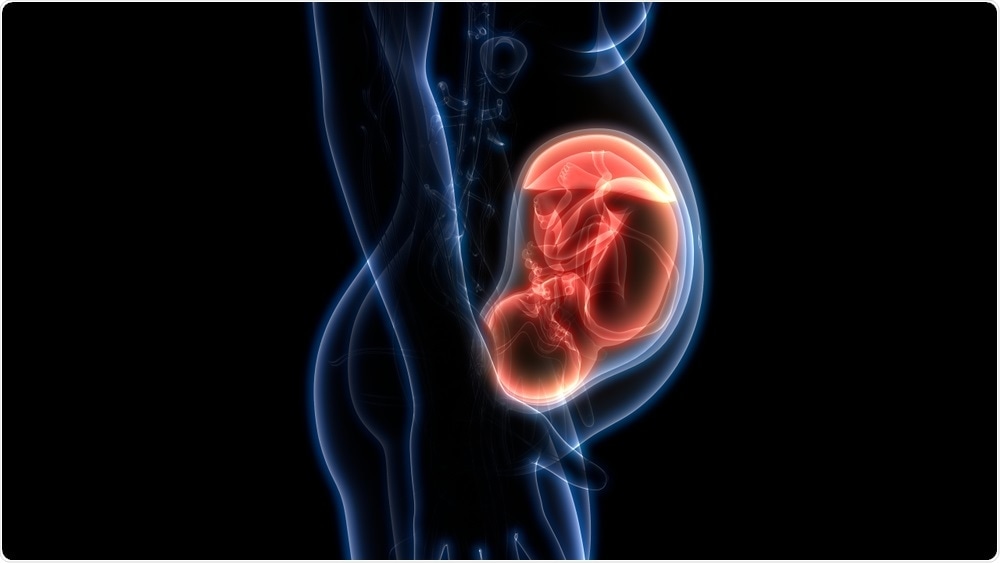The awful reality is that domestic violence among intimate partners increases when one person is pregnant. Without question, the assaults harm the partner directly, as we have come to know from athletes and soldiers.
When our community partners informed us of these real-world scenarios, it became imperative to ask whether the effects of brain injury in a pregnant mother could affect the unborn child. To deliver research evidence for a human condition, we conducted the research as described.
Numerous research shows that many factors can affect an unborn baby’s brain development. What are some of these factors and how do they affect brain development?
As a neuroscientist with specific expertise in traumatic brain injury, development is beyond my area of expertise. Generally, we are aware that alcohol, caffeine, drugs of abuse, poor nutrition, and many other factors can influence pregnancy and fetal development. In research, stress, and inflammation result in a host of early life and late-life consequences that can be categorized as social determinants of health.
Environmental exposure during development – here we’re talking about the exposure of the fetus and uterus to specific conditions – can disrupt the way in which the brain is connected, its responses to specific stimuli, and thereby the overall function for an individual. Given that so many processes work in concert, over a long period, for the brain to develop, it becomes challenging to associate how a single factor may be singularly responsible for the outcome.
Therefore, the current study is the first to address the question that a singular brain injury event has the potential to disrupt fetal development.

Image Credit: Magic mine/Shutterstock.com
How are pregnant women at risk for TBI’s?
Pregnant women have all the same risks for TBI as any other civilian – motor vehicle collisions, recreation, activities of daily living. As a result of their changing bodies, pregnant women may have an increased risk for falls. However, for the present study, we particularly focus on the evidence surrounding intimate partner violence.
When domestic violence between intimate partners turns physical, the assaults are more often focused on the head, neck, and face. Therefore, the likelihood of a TBI is high. And then, when one partner is pregnant, the incidence and severity of abuse are increased. Thus, pregnant women have an increased risk for intimate partner violence assaults and the associated TBI.
Research states that 60-90% of women who suffer intimate partner violence (IPV) will also sustain a TBI. Why is this and why does the risk of IPV increase when one partner is pregnant?
Answering a ‘why’ question is always the most challenging. The information and data within the question relate to the epidemiology and demographics of intimate partner violence. The data indicate that 60-90% of women who report DV/IPV also have neurological symptoms that are concordant with TBI. These individuals report unrelenting headaches, blurred vision, balance problems, trouble concentrating, emotional volatility, etc. And considering that these women report their head being hit or their head hitting an immovable object is concordant with TBI. The associated scrapes, bruises, and lacerations on the head, neck, and face substantiate the history of the injury.
Why do people inflict intimate partner violence on one another? This is a much larger societal issue that likely draws on centuries of human behavior, including the patriarchy, learned expectation, and respect for one another. To complicate an intimate partner relationship, pregnancy can change one’s perspective, goals, and emotional state. Any of these factors, combined with daily social stresses, can elevate tempers and result in violence. Many others are more attuned with these issues than I am.
Can you describe how you carried out your latest research into TBI’s in pregnant women and child brain development? What did you discover?
As indicated above, brain development is a long and complicated process. In determining how to generate the best research evidence to address whether a single, isolated TBI during pregnancy can influence brain development, we elected to use relevant animal models. In an animal model, many of the variables that would be out of our control can be controlled in the research environment. Therefore, our research induced a single TBI in an animal model and evaluated the behavior and brains of their offspring.
The synopsis of our findings is that male offspring were the primary driver of the effects of TBI during pregnancy. The male animal model exposed to TBI during development showed lower body weight at weaning, reduced anxiety, and a dampened immune response to stress or infection. Associated with these neurological findings, their brains were less well organized as demonstrated by more broad, local connections. The interpretation of these findings shows that brain development can be diverted by a single TBI and more studies on the behavior and development are justified.
What is meant by the term ‘gravida TBI’ and what is the importance of raising awareness of it?
Gravida is the medical term for pregnancy or a pregnant woman. Gravida TBI indicates a traumatic brain injury suffered by a pregnant woman, for which health care providers must recognize the consequences for both mother and child.
Our studies elevate the conversation of health care providers to consider immediate and long-term effects of TBI on the child. When gravida TBI occurs, the possibility exists for the child to have increased risk for multiple health conditions, including, but not limited to, neurological symptoms.

Image Credit: nerudol/Shutterstock.com
During your research, you also looked into mental health issues and neurodevelopmental issues. Did you discover any trends here?
As indicated above, the outcome measures we investigated included cognition, anxiety, and depression using standard laboratory animal models.
Why is it critical that health providers document suspected TBI’s from IPV on their medical records?
TBI includes health care issues well beyond the immediate recovery. At the time of injury, specific neurological deficits – headache, dizziness – can occur and resolve rapidly. Other neurological morbidities – cognition, emotion, sensitivity – can be immediate or delayed and persist for months, years, or a lifetime. The importance of health record documentation can aid in understanding the emergence of new symptoms or worsening of others.
Additionally, IPV can be a criminal or civil offense. Documentation by a health care provider, such as a forensic nurse, can be used as evidence for litigation against the abuser.
Do you believe that the COVID-19 pandemic may increase the likelihood of women suffering from TBI’s as a result of IPV due to lockdown measures worldwide?
Unquestionably. Worldwide, articles in the public media and professional journals indicate an increase in domestic assaults. In locations where the number of incidents did not necessarily rise, the intensity and severity of the injuries rose. As indicated above, when DV occurs between intimate partners, and the assaults become physical, then they are likely targeted to the head, neck, and face.
For many, as reported by countless others, the lockdown measures could have isolated individuals in harm’s way with their abuser, without opportunity for intervention by others.
What more can be done to help pregnant women who may be suffering from IPV and at risk of sustaining a TBI?
Traumatic brain injury is treatable. Countless experts work tirelessly to provide assessments and treatment for the many varied neurological symptoms that a TBI patient may experience. The treatments often take time and can aid in lessening symptoms and improving quality of life. The best recommendation is to talk to patient advocates – social workers, colleagues, friends – and ask for help in seeking support.
What are the next steps for your research?
Our research will take two different approaches moving forward. The present study made us question whether the effects of gravida TBI were due to the brain-injured mother raising her offspring, an effect of gravida TBI on the placenta, or expanded effects of neurological and other system function. We have piqued the interest of other colleagues to explore a range of outcome measures with us.
Second, we will identify individuals in our electronic health records with TBI and/or DV during pregnancy. We aim to report on the demographics of the mothers, the birth-related outcomes, and the health status of the children. In this manner, we achieve translational research to bring an understanding of mechanism and impact on society.
Where can readers find more information?
We have strong partnerships with the Ohio Domestic Violence Network, which is leading the conversation about TBI as a result of DV, IPV, and strangulation: https://www.odvn.org/
Other resources are available through national centers for women and local domestic violence shelters.
About Jonathan Lifshitz, Ph.D.
Jonathan Lifshitz, Ph.D., leads the Neurotrauma & Social Impact research team as a joint venture between the Phoenix VA Health Care System, University of Arizona College of Medicine − Phoenix, and Barrow Neurological Institute at Phoenix Children’s Hospital. The research focuses on restorative and regenerative treatments for traumatic brain injury as it develops into chronic neurodegenerative disease. We investigate domestic violence, child abuse, gender imbalance, marital norms, and Veteran mental health. The goal is to translate findings to improve the health of our communities through precision diagnostics, rehabilitation, and new knowledge.
He earned a Bachelors in Neuroscience from UCLA, a Ph.D. in Neuroscience from the University of Pennsylvania, and completed fellowships at UPenn and VCU. He leads local, state, and federal-funded projects, including ones on cognitive rehabilitation, cardiovascular risk factors, systemic effects of brain injury, and vital imaging. Currently, he is the scientific director for regional and national consortia to understand traumatic brain injury arising from domestic violence. He chairs the Arizona Governor’s Council on Spinal and Head Injury, co-hosts the University of Arizona College of Medicine − Phoenix podcast ReImagine Medicine, and is the Lead Scientist and Director of Research and Development for The CACTIS Foundation.